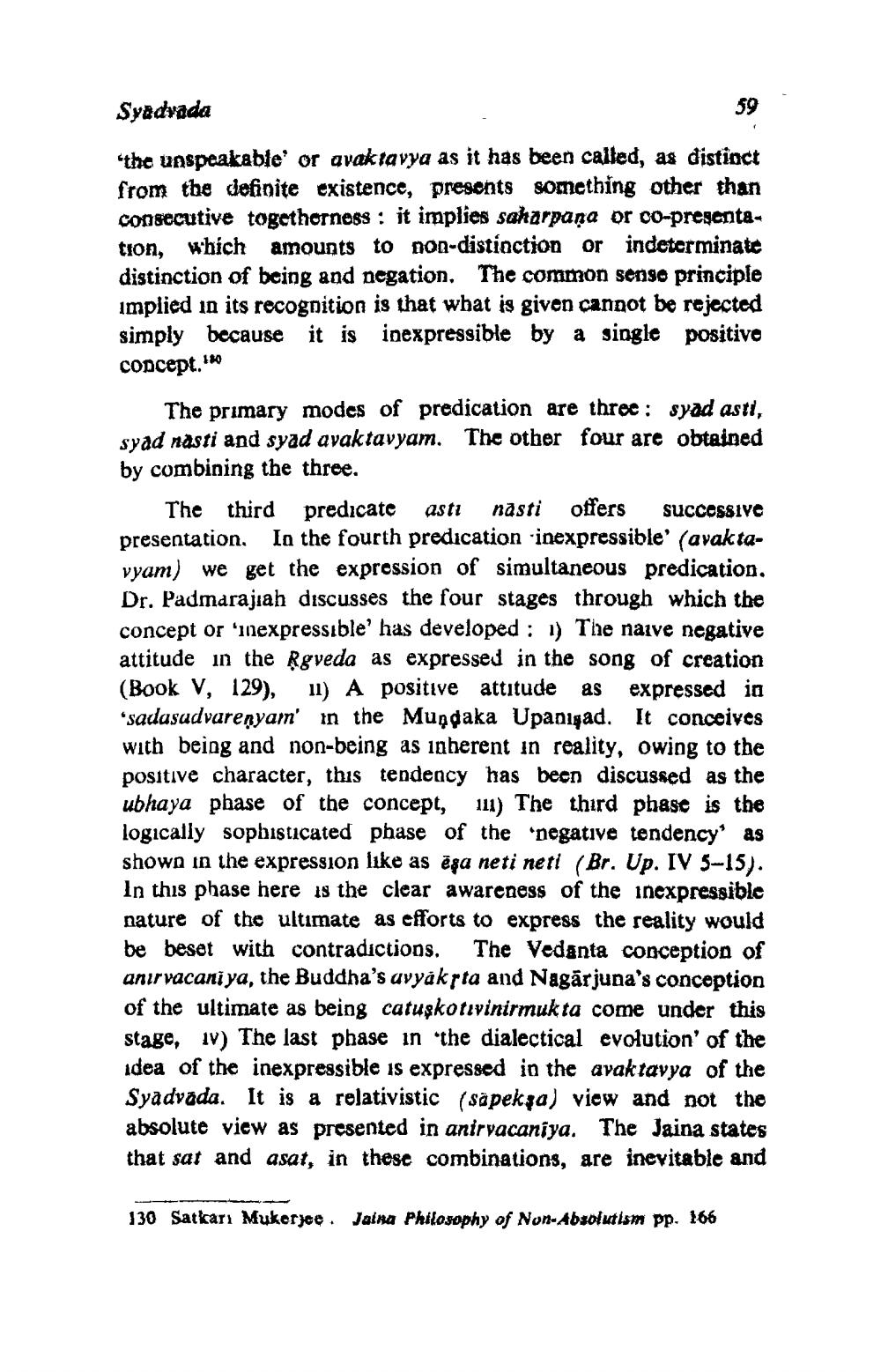________________
Syadvada
"the unspeakable' or avaktavya as it has been called, as distinct from the definite existence, presents something other than consecutive togetherness : it implies saharpana or co-presentatron, which amounts to non-distinction or indeterminate distinction of being and negation. The common sense principle implied in its recognition is that what is given cannot be rejected simply because it is inexpressible by a single positive concept."
The primary modes of predication are three : syad asti, syad nasti and syad avaktavyam. The other four are obtained by combining the three.
The third predicate asti nasti offers successive presentation. In the fourth predication inexpressible' (avaktavyam) we get the expression of simultaneous predication, Dr. Padmarajiah discusses the four stages through which the concept or 'inexpressible' has developed : 1) The naive negative attitude in the Rgveda as expressed in the song of creation (Book V, 129), 11) A positive attitude as expressed in *sadasudvarenyam' in the Mundaka Upaniwad. It conceives with being and non-being as inherent in reality, owing to the positive character, this tendency has been discussed as the ubhaya phase of the concept, 111) The third phase is the logically sophisticated phase of the 'negative tendency as shown in the expression like as ēga neti neti (Br. Up. IV 5-15). In this phase here is the clear awareness of the incxpressible nature of the ultimate as efforts to express the reality would be beset with contradictions. The Vedanta conception of anırvacaniya, the Buddha's avyaksta and Nagārjuna's conception of the ultimate as being catuskotivinirmukta come under this stage, iv) The last phase in the dialectical evolution of the idea of the inexpressible is expressed in the avaktavya of the Syadvada. It is a relativistic (sapekpa) view and not the absolute view as presented in anirvacaniya. The Jaina states that sat and asat, in these combinations, are inevitable and
130 Satkarı Mukerjee. Jaina Philosophy of Non- Absolutism pp. 166




